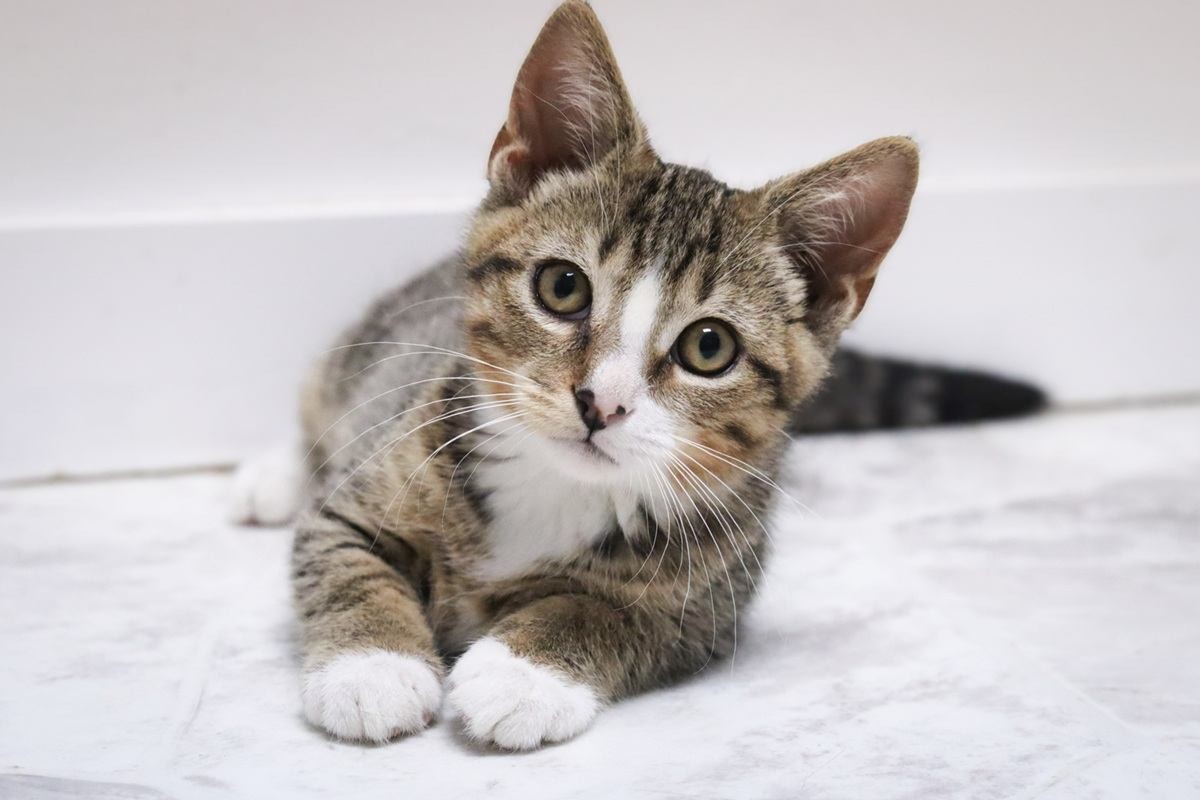Bringing a new kitten into your home is an exciting time. You’re likely flooded with information about kitten care, but one question often arises: “Is It Ok For Kittens To Eat Adult Cat Food?” The answer, in short, is generally no. This comprehensive guide will delve into the specific nutritional needs of kittens and explain why adult cat food falls short.
Understanding the Kitten Life Stage
Cats progress through distinct life stages: growth (kitten), adult, senior, and sometimes geriatric. The kitten stage, lasting approximately 10 to 12 months, is a period of rapid development. During this time, proper nutrition is paramount.
For the first four weeks, kittens rely entirely on their mother’s milk. Around four weeks, weaning begins, gradually introducing solid food, ideally more wet or canned food initially due to the ease of consumption for their developing teeth. By two months, kittens should be fully weaned and consuming commercially prepared kitten food, either wet, dry, or a combination.
The first 24 weeks represent the most rapid growth phase. Even after appearing fully grown around six months, internal development continues. In their first year, kittens can increase their body weight 40 to 50 times their birth weight, underscoring the necessity of kitten-specific formulas until growth ceases.
The Nutritional Essentials for Growing Kittens
Protein: The Building Block
Protein is crucial for growth. Cats are obligate carnivores with a high protein requirement, which is even greater for kittens. Protein facilitates muscle, skin, fur, nail, and organ formation, as well as cellular growth, repair, and regeneration. It also forms the structure of hormones, enzymes, and antibodies essential for a healthy immune system.
Amino acids, the building blocks of protein, are categorized as essential and non-essential. Kittens and cats must obtain essential amino acids, such as taurine, from animal-derived food sources because their bodies can’t produce them.
A balanced kitten diet contains protein from various sources to ensure a complete amino acid profile. Young kittens require a minimum of 30% protein on a dry matter (DM) basis, while adult cats need only 25-26%. Many kitten foods exceed these minimums.
Fat: Fueling Growth
Fat provides energy. With 2.5 times more energy than protein or carbohydrates, fat is crucial for rapidly growing kittens. This high caloric density allows for smaller, balanced portions, preventing overwhelm for small stomachs. Approximately 30% of a kitten’s energy should come from protein.
Omega-3 fatty acids EPA and DHA are vital for brain and retinal function. Kitten food containing adequate levels of both is recommended for optimal development. Fat also enhances palatability and aids in the absorption and storage of fat-soluble vitamins, such as vitamin A, another essential nutrient.
The Significance of Ingredient Quality
The source and quality of ingredients are essential for appropriate growth. Nutrients must be easily accessible for digestion and metabolism. Kitten food should be formulated for bioavailability and digestibility.
High-quality cat foods list animal-derived proteins like salmon, lamb, or chicken. These are easily recognizable and provide essential amino acids that cats need versus vegetable- or cereal-based proteins.
Look for labels stating, “Meets the nutritional requirements of kittens established by the American Association of Feed Control Officials (AAFCO)” or “Complete and balanced nutrition for kittens based on AAFCO feeding trials.” In Europe, labels will refer to FEDIAF.
Calcium and Phosphorus: Bone Development
Kittens need higher levels of calcium and phosphorus for bone and muscle development than adult cats. The ratio of these minerals is critical and must be carefully balanced. Commercial kitten foods are formulated to meet these needs, and supplementing with additional calcium can cause bone and growth deformities.
Why Adult Cat Food Isn’t Suitable for Kittens
Adult cat food does not provide the necessary levels of protein, fat, calcium, and phosphorus required for a kitten’s rapid growth and development. Feeding adult food can lead to deficiencies and health problems.
Conclusion
Kittens grow rapidly and require specific nutrition. Avoid adult or senior cat food for the first year. Ensure kitten food contains high-quality, digestible ingredients in the right proportions for optimal growth. Always provide plenty of fresh water.
Frequently Asked Questions
When can kittens eat adult cat food?
Switch to adult cat food only when your cat is one year old.
Can kittens eat adult wet food?
Even adult wet food formulations may lack essential nutrients. It is best to feed kittens food that is specifically formulated for them.

